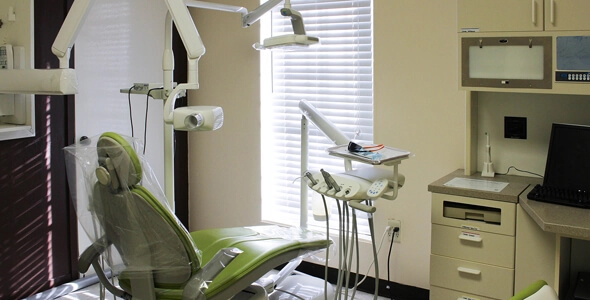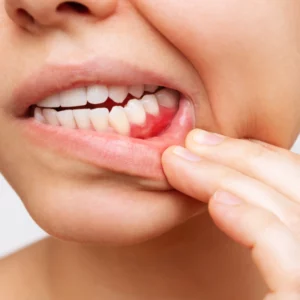Eating something cold such as smoothies and ice cream is a great way to treat yourself on a warm day or after a very busy day. However, if you suffer from sensitivity, your experience can turn from being delightful to simply just painful. One out of every eight people around the world suffers from sensitivity and has trouble eating anything cold.
Tooth sensitivity or dental hypersensitivity is therefore quite a common condition. According to experts at a dental care Houston, it often occurs via unhealthy eating habits or even as side effects due to some dental treatments or other oral conditions.
Why do teeth get sensitive to cold?
The layer right next to enamel in our teeth is called dentin. It is a very sensitive and soft layer. Dentin covers the pulp of your teeth. This part is where your blood vessels and nerves are located. Once dentin gets exposed, generally due to weak tooth enamel, you start experiencing tooth sensitivity. Texas dental care
suggests that the degree to which you experience teeth sensitivity depends on how much dentin is left unexposed. Here are some of the most common reasons for getting tooth sensitivity because of damaged tooth enamel:
Untreated tooth decay
One of the most common reasons why you may acquire tooth sensitivity is tooth decay. Tooth decay starts at the early stages when there is a small scratch or a small hole in the enamel of your tooth. This hole is not exactly visible with a naked eye. When the bacteria present in your mouth and teeth start to get through this enamel via this small hole, your dentin starts to get exposed. Once dentin is exposed, your nerve endings get directly in contact with the extremely cold temperature of food, drinks, or even sometimes air. Hence tooth sensitivity begins to develop.
Using a toothpick or brushing aggressively
Even though flossing and brushing regularly is a great habit to maintain, sometimes your brushing technique can be the culprit behind tooth sensitivity. When you brush aggressively with a hard-bristled toothbrush, you may accidentally end up scratching the surface of the enamel of your tooth. Bacteria then grab this opportunity and start to break down the enamel thereby causing tooth decay and sensitive teeth.
Even though a toothpick is a very popular tool to remove any residual food particles from your mouth after you consume meals, your dentist might recommend that you opt for dental floss instead. The reason is that sometimes a toothpick could get too hard for the enamel in your teeth and could inadvertently scratch its surface. Even though the enamel in your teeth may appear sturdy, unlike other body parts, it simply cannot repair itself.
Teeth grinding or bruxism
Teeth grinding or bruxism is a very common way in which people react to high-stress situations. Even though most people perform this action occasionally, many patients who suffer from anxiety or work in a very stressful environment are prone to acquire teeth-grinding as a habit.
When you clench your jaws, you are essentially adding more pressure to your teeth and your bite. When done repeatedly, this action starts to wear down your lower and upper teeth gradually. When the enamel in your teeth starts to break from this constant force due to teeth grinding, the dentin in your teeth starts to get exposed hence causing teeth sensitivity.
Chipped or cracked tooth
If you had an injury or if you sometimes use your teeth as a tool such as. to open a bottle, you may sometimes get a chipped or a cracked tooth. Even if it is a small crack or if your tooth is just slightly chipped on the enamel of your teeth, it may be a cause for tooth sensitivity. You may also be at a risk for a severe tooth infection as bacteria could easily access all the inner layers using these cracks.
Exposed tooth root
Your tooth root is a part of your teeth right beneath your gum line. This part contains the blood vessels and nerves and is generally protected with a thick layer of cementum. Once the cementum or gums start to get damaged, your tooth roots start to get exposed to all the things that you consume therefore developing tooth sensitivity. Smoking, teeth grinding, and gum recession are some common causes why your tooth roots may get exposed.
Conclusion
If you suffer from tooth sensitivity, it may hinder the way you live your life and particularly the food you enjoy. Dentists at the best dental offices in Houston generally offer restorative services to save the patients from the acute pain caused due to tooth sensitivity. Some common treatments that can help in treating sensitivity are dental bonding, tooth fillings, fluoride treatments, and using a desensitizing toothpaste. When you get your sensitivity treated, it will not only improve your oral health but also help you enjoy the food you consume.












